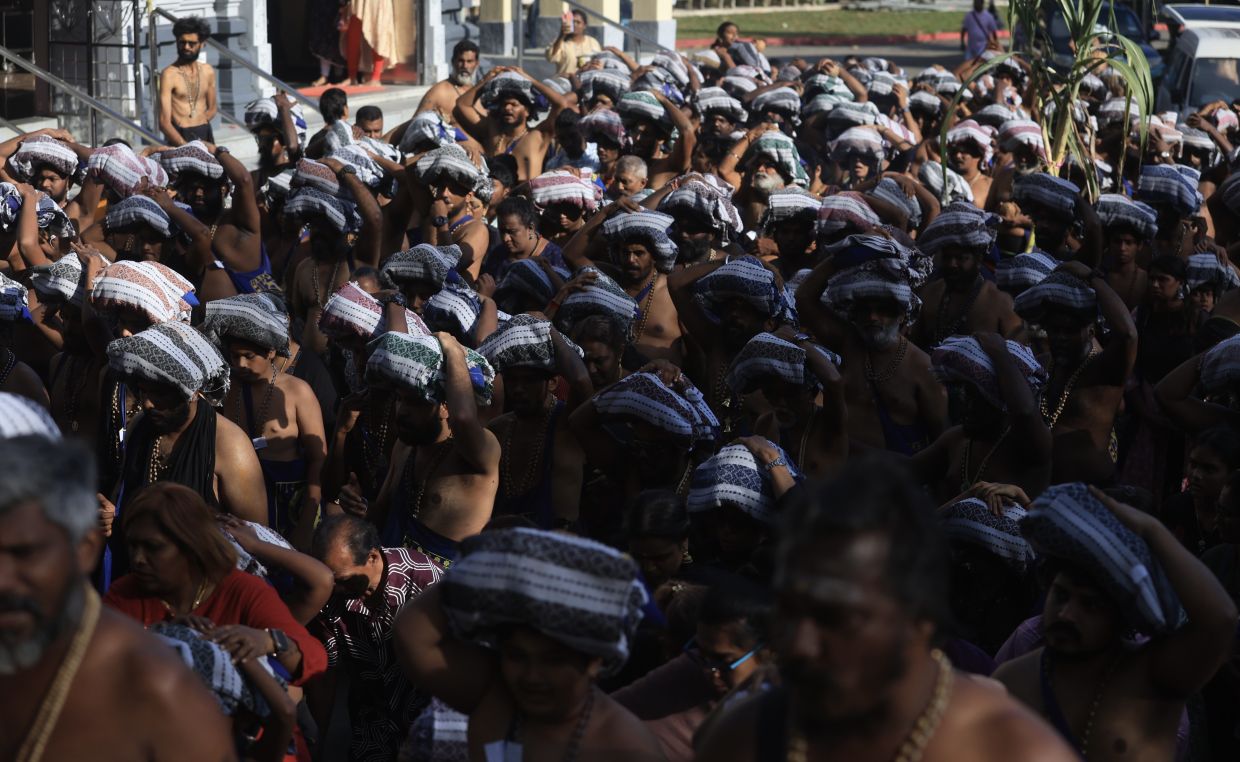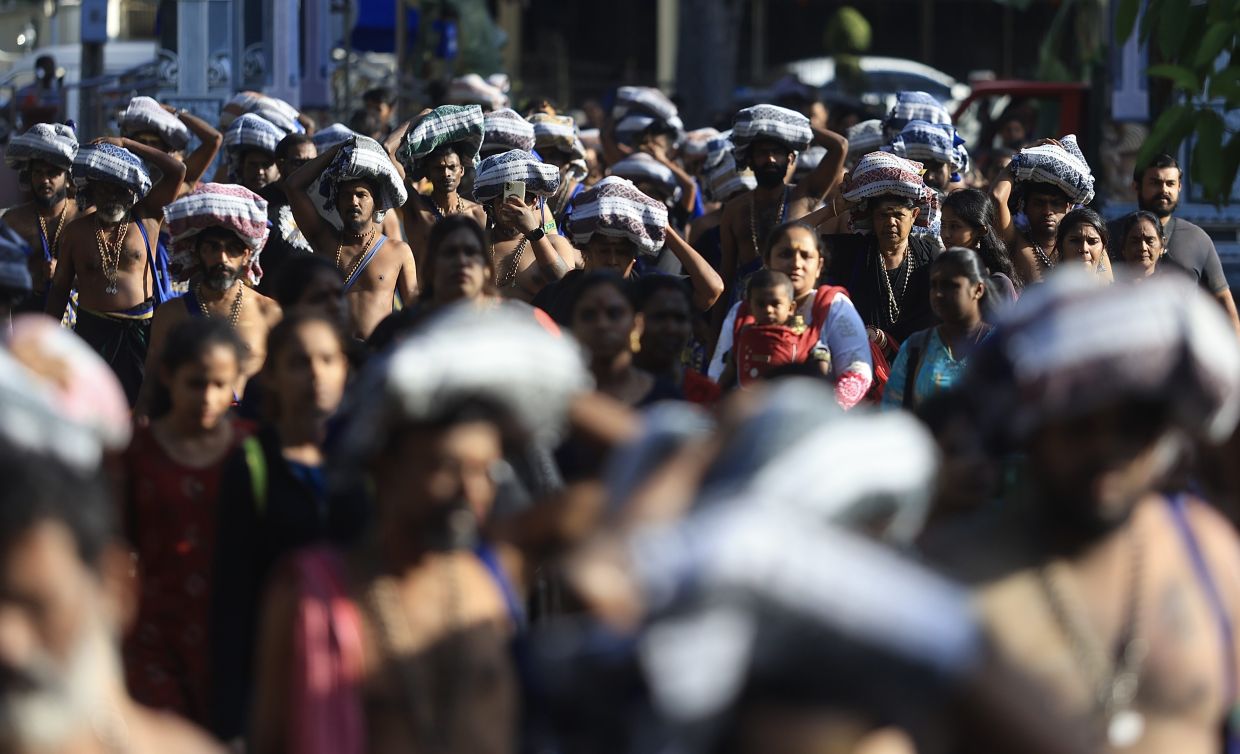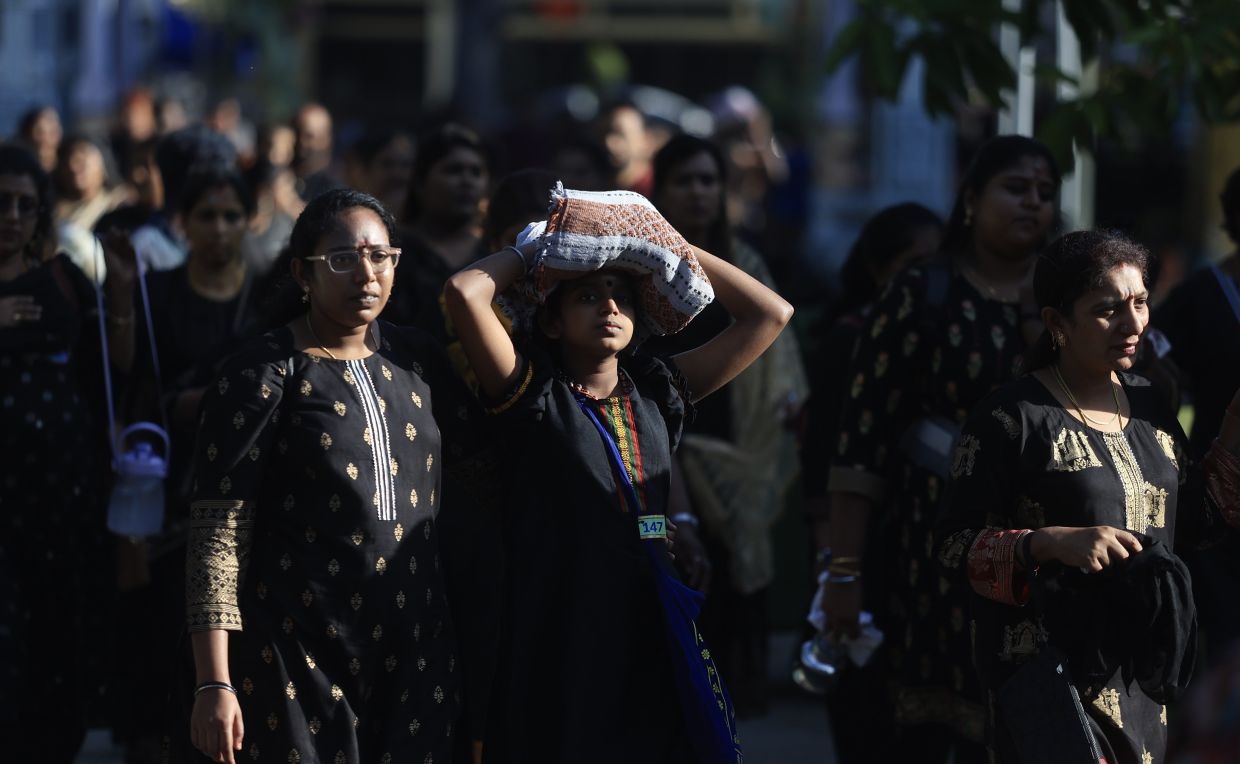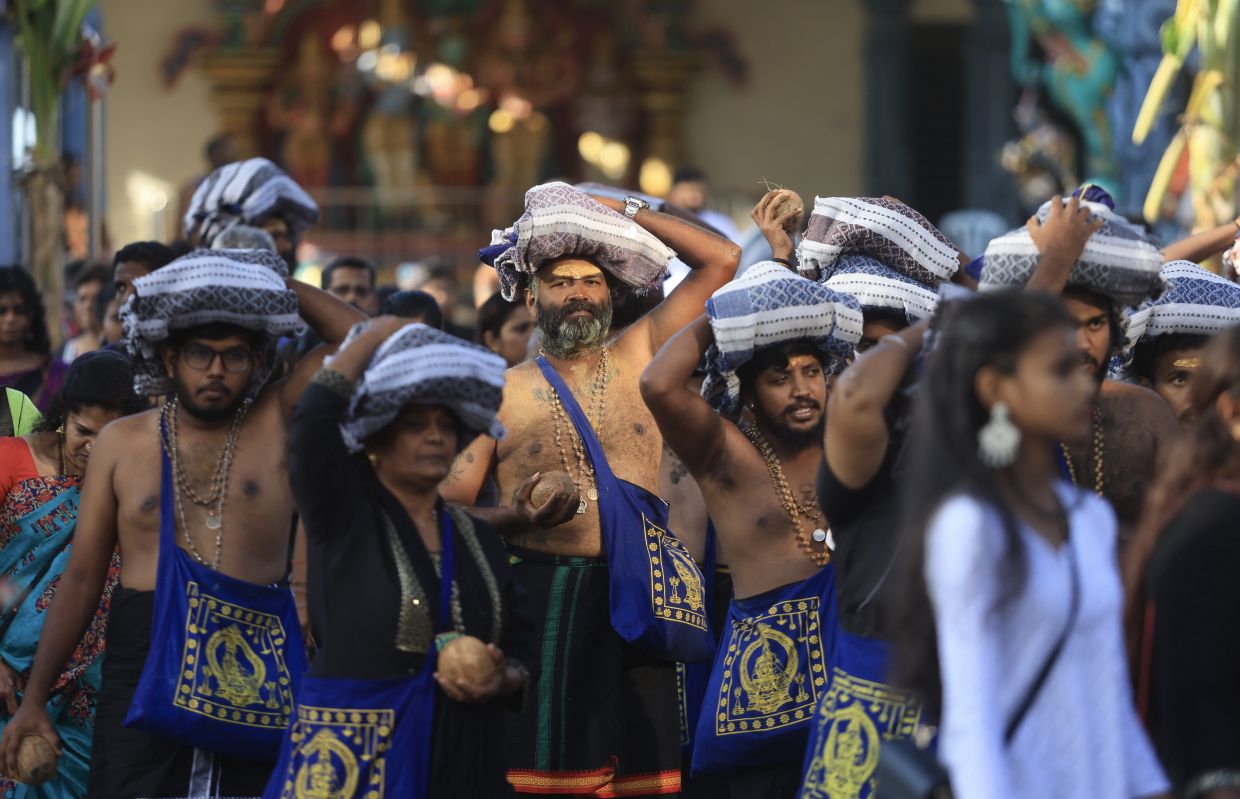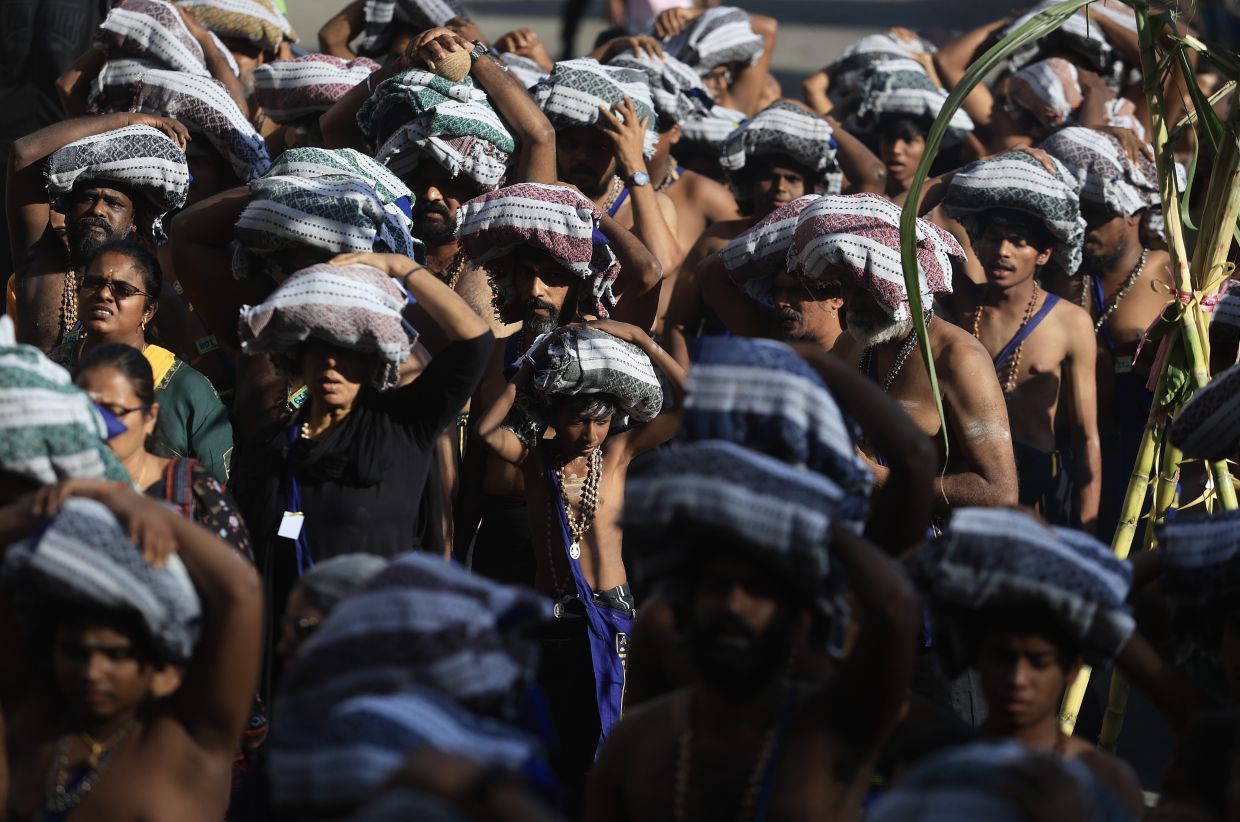GEORGE TOWN: For housewife Hevarsni Kunabal, this year's Ponggal celebration marks a delightful shift in her usual routine.
The 37-year-old first visited the Nattukottai Chettiar Temple here to witness the traditional Ponggal preparation before heading home to create her own festive dish.
"This time, I plan to prepare it in the evening so that my husband and children can join in the tradition of chanting 'Ponggalo Ponggal' together as a family.
"It will be nice to celebrate together," she said, referring to the chant that marked the moment the rice mixture boiled and overflowed from the claypot, symbolising abundance and prosperity.
In previous years, Hevarsni would spend her morning preparing the sweet rice alone at home, as her husband and two children were at work and school.
To set the tone for the occasion, she would also burn sambrani (balsamic resin) around the house, symbolising a shift in energy and creating a festive atmosphere.
"But this year, I decided to experience the celebration at the temple.
"It's always special to see how the sweet rice dish (ponggal) is prepared in a traditional claypot.
"There's a saying that ponggal made at the temple tastes better," she said when met at the temple in Jalan Kebin Bunga on Tuesday (Jan 14).
Hevarsni said she has already prepared her kolam and bought the necessities to make the rice.
"I bought sugarcane, brown sugar, rice, milk and other ingredients as they must be new and should not be from the fridge.
"I make my ponggal on the stove as I do not think I can manage building a sturdy fire to cook it outside.
"But we do place sugarcane in our house as it is part of our tradition," she said.
Hevarsni said that her family would celebrate Ponggal for three days, with the first day being the most significant.
"It's a time to give thanks to the sun for its light and the abundance it brings, as well as to express gratitude to nature for providing for us throughout the year," she said.
A family of three - husband T. Eswaran, 50, his wife S. Jeyanthi, 47, and their daughter Sharenya, 18 - were seen praying at the temple, continuing their annual tradition of offering prayers during Ponggal.
"We take the day off and celebrate at home early in the morning before coming over to the temple.
"We made the ponggal this morning as we were told the auspicious time was 8.30am.
"We set the claypot up on the stove and boiled the milk, rice, brown sugar, ghee, cashew nuts and raisins to make the ponggal.
"I then took the whole pot and put it at the altar to pray before we ate it," said Jeyanthi.
The branch manager said that while Ponggal is traditionally celebrated by farmers in India, here it is observed as a symbol of a fresh start as it closely aligns with the New Year.
"Some cook vegetarian food at home but since it is just the three of us, we will eat out and observe being vegetarian today," she said.
Ponggal, meaning ‘to boil over’ in Tamil, is celebrated from the last day of the Tamil month of Margazhi (December to January) to the third day of the Thai month (January to February).
Farmers in India celebrate it on the first day to represent the first harvest of the year.
The second day is known as Mattu Ponggal and is devoted to cows, regarded as sacred animals.
Young women are celebrated on the third day known as Kanni Ponggal.
It is also celebrated as a form of thanksgiving for an abundant harvest.
The eve of Ponggal is called Bhogi (Jan 13) where cleaning and discarding of old belongings is carried out to signify a fresh start.




